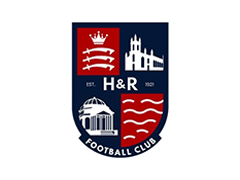In this exclusive interview, recorded for this season of the Movember Podcast, Movember co-founder Adam Garone sits down with renowned filmmaker Morgan Spurlock to tackle everything from the art of storytelling to the joys of fatherhood.
Filmmaker Morgan Spurlock rose to fame as he underwent a massive transition, eating McDonalds everyday, three meals a day, for an entire month for his Oscar-nominated 2004 documentary 'Super Size Me'. Since then, Morgan has continued to tackle big problems and ask big questions in his TV series '30 Days' and movies like 'The Greatest Movie Ever Sold'.
Adam sat down with Morgan in New York between the premiere of his newest project, 'Super Size Me 2', and the launch of his new podcast.
ADAM: So, you did a documentary around the relationship between grooming and masculinity?
MORGAN: Yes. Called Mansome. If you've never seen this film, you should see it. It's a fun movie. It's all about the world of manscaping, and kind of what that means, and the film came to us, and it's one of those where it's like, it wasn't like I was lying in bed pinning to make a movie about Manscaping.
But my friend, Ben Silverman, who we produced a lot of stuff with over the years he was the former President of NBC, had a company called Elect Us and I did the T.V. show '30 Days' with him years ago. He said, "I was with Will Arnett and Jason Bateman, and they want to do a movie about manscaping. Do you want to meet with them?" And the only answer that question is, "Of course I do. Of course I want meet with them."
It's an amazing dynamic. But that's how they are all the time. And after that was over I was like the only answer is, "Yes, like we have to make this movie because it's going to be so much fun." And you know we got Paul Rudd in the film and Zach Galifianakis, I mean it was a really fun movie you know.
ADAM: Is there any difference between the Morgan Spurlock we see in the movies and you in personal private life?
MORGAN: Sadly not much. There's not a lot of mystery that's why I try to be as open and honest in the things that I make, because I want it to be as real as possible. I’m not really holding anything back as to who I am.
I will hold back a lot of real opinions about things because I don't want to tell you what to think in most of the stuff I make. For me, it's more important for me to help push you how to think rather than what to think. I want you to generate your own opinion about whatever we're talking about, and whether I agree with it or not - have an opinion. It would come to a point where, "Here's what I believe.” It still may not be what I believe but I think it's better to stand for something than stand for nothing.
ADAM: How have you seen masculinity evolve the years from now from the image of your dad as you now as a father, and even how you're bringing up your boys?
MORGAN: I think the biggest thing, and it's how I try to live my life: I feel very masculine in my existence but I also feel very in touch with my emotions. I feel empathy. I feel like there's nothing more masculine than empathy. There's nothing stronger than being able to be in touch and understand how other people feel and what they're going through.
So I try and instill in my children, just as my mother instilled into me, this idea of caring for others, as much as you care for yourself - and it doesn't need to be people that are in your life. Helping someone on the street, talking to someone you've never seen, giving someone directions. I try to be open to everyone and try not to judge them or put them into a box which is easy to do – especially in today’s and this segmented country that we're in right now.
ADAM: We are living in an interesting time. It's polarizing at the moment in the US. I can only imagine from LA to New York, it must be tough to still focus on that when we have some role models saying otherwise.
MORGAN: You can still be a man and stand up for what you believe in and not be so confrontational. And not have everything have to be a fight.
Some of the strongest men I think in the world are the ones who never get into confrontation. Are the ones who are able to have, have a real conversation with you and get to a greater position of understanding. And that's ultimately how I want to live my life and hopefully my sons as well. But you still, you still shouldn't walk away from a fight if you have to.
ADAM: So in the early years of you establishing your production company, I read that you were running the whole payroll.
MORGAN: I was homeless.
ADAM: You racked up $250,000 worth of debt. What was driving you at that point? Was it just to make it? Was it to create change or you know fame and success?
MORGAN: I mean it was none of that. I was starting a business, I was starting a company. And at the time I was 30, 31 and had no kids yet. So the idea of me taking risks it was like, "Who cares?" You know.
ADAM: What's the worst outcome?
MORGAN: What's the worst? I declare bankruptcy. I said, "But I think that if we can just stay the course, we can make something come out of this." And I mean people quit, there were people that were like, "This is going nowhere." And they walked out of the company while we were doing it.
I got evicted from my apartment and was sleeping in a hammock in my office. I had great credit so I was taking out credit cards to pay bills, to pay credit cards to, to pay bills, to pay employees, to pay their rent. And then when you start using credit cards to pay for credit cards, is when shit gets bad. That's when shit gets really bad.
And so, I amassed about over a quarter million dollars in credit card debt in just over a year.
My brother sent me the hammock that was in his backyard in West Virginia so I could string it up between the two. I didn't buy the hammock because I couldn't afford it. So I said to my brother said, "Can you send me your hammock?" And so he sent me the hammock that was in their backyard that I hung up, I would hang it up every night with chains in between two beams in the middle of my office and that's what I slept in.
Um, and then every morning I would wake up go around the corner to the to the gym where I would take a shower so I was very fit because I had to go the gym everyday to actually take a shower.
But then I would come back and I'd be at the office and I was like, "I still got an office. I may not have a home but I still got an office." I still had something, I still had this thing that mattered.
I wasn't chasing fame. I guess you could say you're chasing success because you don't want to quit.
The one thing that I never saw my father do in all those years of starting a business or selling a business or closing a business, is I never saw him quit. And so for me I was like I'm going to see this through to the end whatever that end is.
ADAM: You're a great storyteller. Where did that inspiration come from and when did it start?
MORGAN: Well my mother would say when I started lying to her as a younger child. But I think, I come from a family of storytellers - it was just something that was very inherent to our family that you would sit down and people would tell stories.
ADAM: You're also really good at finding weird shit to talk about. Where did that inquisitive nature come from?
MORGAN: That's a great question. I think probably again from my mom. I got two extremely different traits from my parents. My father was a lifetime entrepreneur.
Throughout my childhood, I would see him starting businesses. He'd sell one, he’d start one, it would fail, he'd shut it down and he'd start a new one. But I never saw my father quit.
But my mother, was always encouraging us to ask questions. Like why is this happening? Why do you believe that?
ADAM: You quoted your mom as saying, "every silver lining has a cloud behind it." Tell me about that.
MORGAN: Both my mother and my aunt are daughters of Depression-era parents, where you have to work hard for everything, nothing's easy. And no matter how good things are, well, they're not that good. Trust me this may be good now but it's going to fall apart soon enough.
ADAM: You've done a great job of using humor through storytelling, often around quite serious subjects and using humor to influence and incite change. Where did that come from and how important is that in your storytelling?
MORGAN: That 100% came from my mom. She has a great sense of humor. Always did. She raised me on a fine diet of British comedy. Growing up we'd watch Monty Python, The Young Ones and Blackadder.
She and I just were giddy watching these shows. A couple years ago I got to take her to the Monty Python reunion show in London when, at the O2, just as like her birthday present.
I was so proud that I got to do that with her because it was one of those moments I spent with her in my childhood that were so formative for me and really helped me understand: One, who I was as somebody who looked at the world. It helped me understand it through things that are funny. It’s the whole idea that we have at my production company which is: if you can make someone laugh, you can make someone listen.
And all of those comedy shows did a great job of dealing with really serious topics in a way that you laughed at.
ADAM: So often in your, your storytelling, you're the central character. Do you prefer being on the camera or behind the camera?
MORGAN: I like both I and I understand the value of both. We just finished a new film where I'm on camera again. I think those journeys are awesome. For me to be able to take you on this vicarious journey: when I learn something, you learn something, when I see something, you see it, when I feel it, you feel it. There's a great trade off in those moments and a trust that you have in me and me in you as we go on that journey together.
But I also love making movies where I don't have to do that, because then I don't ever have to worry about how good-looking I make this ugly mug every day.
ADAM: Let's talk a little bit about Super Size Me. So that was a huge cultural phenomenon. You were nominated for an Oscar. How did you deal with the frame that came with that?
MORGAN: There was a moment when I was at Sundance in 2004 with Super Size Me about halfway through the week, and James Rocky, film critic came up to me in the middle of Sundance and he said, "So, Mr. Spurlock, how does it feel?" And I was like, "What are you, what are you talking about?" He said, "You're the belle of the ball. This is your Sundance."
I'm getting chills literally again as I'm telling you the story because it's that moment where I took a step back and I was like: Holy shit. Like, I'm Cinderella. I'm the guy who's going to come out of this festival and my life's never going to be the same. And it wasn't.
It was very fortunate to be surrounded by great people who kept my head straight - from friends who I've been working with for years just like you did, to family members, to people came up on to my team to help put the movie out. I was surrounded by real people. I wasn't surrounded by the typical douchebaggery Hollywood types. I was really lucky.
I could have, it could've ended very badly. I give a lot of credit to my parents and my family who made me realize: you know this could all go away.
There's the cloud behind the silver lining. This is good. You should enjoy it, but it's all going to, it could all go away tomorrow.
ADAM: I've always thought about this: it's about enjoying the journey because you do get transfixed on the destination on, on that time and when you hit success.
MORGAN: That's right.
Some of the best advice I ever got was from Dennis Miller, the comedian, and this was right when Super Size Me was exploding and coming out in theaters. I was doing the rounds of the talk show circuit and T.V. shows. On his T.V. show, as we went to commercial he was congratulating me on the film and on how everything has happened and he said, "I just want to give you some advice. Enjoy this. Enjoy everything that's happening right now because, because the elevator up only happens once."
And that's one of the things where to this day I'm still incredibly thankful and grateful with everything. The whole ride, the whole journey, you can't just beat yourself up all the time. And if you don't take time to enjoy then you're going to be this bitter old angry.
And I see these bitter old angry people who all they do is work and there's no fun in their lives. So I try to find the fun in everything. We have a fun office. I have fun with my family. You have to enjoy those, those worlds or else what's the point?
ADAM: What part of the journey did you enjoy the most?
MORGAN: I'm still enjoying it. It's still great. For me, the most exciting thing is what can we do now. I love the ‘what's next.’ Like I love the stuff we've done. I loved everything, loved everything that I've got to be a part of until now, but for me, I’m still like, what's still to come? As my oldest son becomes a teenager, what's still to come is like my new baby boy learns how to talk. What's still to come in the movies that we're getting to make and as this new movie is getting ready to come out? I revel in all of it.
ADAM: One thing I've found is that there's really nothing like working with your brother - nobody else can call bullshit on you like a brother can.
MORGAN: That's right. My brother works with me now here in New York. He moved up from West Virginia. So now he works at our company. It's great having somebody there who's like, "Stop being, stop being a shithead."
ADAM: What was it like to be in an audience and have the rest of the audience around you watching Super Size Me for the first time?
MORGAN: It was amazing. But to be in that audience, to see this crowd laughing at things that we thought were funny, kind of oohing and aahing at things that we thought were important and mattered, and to see the response afterwards - you gotta think, this was now after years of living it and sleeping in a hammock, and now, moving into an apartment with my girlfriend and feeling like well, "This is it." It was so exciting when we got into Sundance. And now, here we are premiering the movie and it felt so gratifying, just like when you guys did your $8 million run, you know suddenly you're like, "Oh my God, this is something, this is real." When we had the film there and that premiere happened, it was like, "This is real."
ADAM: So, were there any long-term sort of health effects from eating all that shit for 30 days, mentally and physically?
MORGAN: Yeah, I think the biggest one—well mentally, not long term, the short term effects were really dramatic in terms of how it affected like my blood pressure, my cholesterol level, my liver function, my mood, my sexual dysfunction, all the stuff that came from this terrible food. But the one thing that stuck around which to this day my body I think is still affected by this, is gaining weight.
After that, after I lost all the weight, I could go out and I'd have a great binge weekend where it's just pizza, pancakes, drinking beer whatever it is and I could put on ten pounds like that, like over the course of a weekend.
ADAM: After the success of Super Size Me, did you then feel the weight of expectation around your next production?
MORGAN: Totally. Very much, and I think that the best thing, the best decision I made out of that was we got the idea for 30 Days, which was the T.V. show we sold to F.X. We sold that show right out of Sundance.
I went from selling our movie at Sundance in L.A. to selling the spinoff of that film as a T.V. series.
It was a smart show, this was, this was right at the beginning of reality T.V., so here was a show that actually dealt with reality, it dealt with immigration, it dealt with living on minimum wage, it dealt with homosexuality, gay marriage. It was a powerful show at a time when shows weren't really talking about this - when reality shows weren't really talking about this.
ADAM: What production are you most proud of?
MORGAN: That show. The sheer volume of things we've got to tackle over three seasons was amazing. Not that I enjoyed going to prison for thirty days, but being able to tell a story about going to prison was great. Exploring the coal industry as I became a coal miner for a month. I lived on the Navajo Reservation and talked about the plight of Native Americans in our country. We got to dive into things that were hard for other people to push through at networks.
ADAM: Did you have to feel as though you a part of the Hollywood entertainment scene?
MORGAN: That's why I live in New York.
ADAM: As far away as you can... ?
MORGAN: See, I'm a fan. Still to this day when I go to L.A., which you still have to for meetings and pitches and potentially fundraising, whatever it may be. For me I still feel very fringe-y. I still feel like I'm very much on the fringe with what we do and. The stories that I tell, what I'm about, that's where I want to be. I want to be the cloud around the silver lining. That's it.
ADAM: How is the concept of success and being successful changed from your time in your 30's to now?
MORGAN: Now people return my phone calls. It's the best! When you reach the point where people call you back, is the greatest day ever. When you can get someone, no matter who it is, to actually return the call, good things will come out of it, for me, that's the greatest part of what success is. Now, anything's possible.
I've reached a point where I can make just about anything I want. I can tell just about any story I want. I can do almost anything, so now you have to be really smart and selective. Now the greatest, the most valuable commodity I have now is time. How do I manage that the most efficiently, the most effectively, so that I get to spend time with my kids, so I get to build my business, I get to do the things that I find to be the most emotionally and personally valuable from a creative stand point?
I don't chase the idea of, "Oh my gosh look, there's a plastic surgery show on T.V., where's our plastic surgery show?" That's not the way we run our company. I'm very much about the things that we are excited about and that we think are important stories to tell.
ADAM: How has your approach to relationships changed with age and with experience?
Morgan: I've recognized how much more important family is and time with them and my friends. I think you realize how important is to be a better friend and that's something I strive with every day.
Because as a workaholic you get distracted. I feel like I have to do work rather than all the stuff that feeds my soul and my spirit as a friend, as a brother and as a family member.
ADAM: If you had a buddy come up to you and say, "I love my kids, I love my family, but marriage is on the rocks, I think we're going to break up, what would your advice be?"
MORGAN: It's a great question because I got divorced couple years ago and I think it was the best thing that could have happened for us. It was the right thing to happen.
But I tell my friends, and I've had a few different friends who've asked me since then, and I say, "You should try to work it out. You should, you should go to therapy, you should spend time with each other, you should make your relationship a priority." And I have had a lot of friends who have made it work, who said, "You're right. I should try to stick this out." And other ones who ended up getting divorced.
It's emotionally taxing on you and your family. The one upside is my son has no recollection of us being together - we separated before he was two years old, so all he remembers is mom's house and dad's house.
I'm remarried, she's remarried, so he has two complete families that love him to death. So now he gets four Christmases, so he's ecstatic.
But I think if you can find a way give up whatever that was, make a sacrifice that will find middle ground in that relationship, it's always worth trying. And it doesn't always work. But you're better off trying than not and I think personally you'll at least feel like you went the extra mile.
ADAM: So your first wife, Alex, she was in Super Size, Super Size Me with you, did that impact like working with your partner, did that impact...?
MORGAN: Our relationship?
As I told you, I was a workaholic. I was gone a lot. I traveled a lot. I shot a lot. I was continuing to try and build my business and I never made my relationship a priority. I never made she and I a priority. We were very close, but I never made us being a couple a real important part of our life. And by the time it came around, it was too late.
ADAM: What have you taken from that experience into your next marriage?
MORGAN: For me it's about taking time to listen to that other person, spend time with that other person, to prioritize those moments that you spend together, to shut the phone off, to actually have some moments of intimacy, that don't have to be sexual intimacy but it could be, conversational intimacy, where you're actually having dinner, talking to one another, not in front of the television watching Game of Thrones, which I love to do. But sometimes it's nice to have dinner and have a have a real honest end of day, "Look at me, look at you, lookin' at you look at me, let's talk and here's what's going on."
Those are great, we do that a lot when all of our families together when both my boys are there and we're there. But with just the two of us doing it we started to let it go and we realized that we needed to circle back and make that important again.
ADAM: Do you remember with Sarah, your wife now, the first really meaningful conversation where you were like, "This is serious"?
MORGAN: Yeah it was when I was still married—so that's how this all transpired. It was in the middle of that, where she and I started talking and we really hit it off, we really cared for each other, and it was one of those where I realized there was something, there was really something special about what she and I had.
ADAM: With Presley, my daughter, I travel a fair bit with work. I'm trying not to travel as much, so I can be home more, you still travel a lot. What do you do like practically to stay connected?
MORGAN: The greatest thing that ever happened is FaceTime. The fact that I can actually look at my kid now and he can see dad. The fact that I can FaceTime with them and they can see me that I can call them and talk to them, actually have a bit of an emotional connection with them, even though it's not a physical connection, I think it makes a big difference versus just being on the phone. Because when you're on the phone with somebody, as we all know, you can not be paying attention 75% of the time and be distracted by other things or whatever's going on, whether it's laundry or T.V. or computer or anything. You know?
ADAM: I FaceTime with my daughter Presley and she loves to press the red button.
MORGAN: And make it go off?
ADAM: Yeah. I'm like "What're you doing Presley?" Jesus.
MORGAN: My youngest, my son Calen, that's all he does. He takes the phone, he runs away with it and then he presses the red button. Because it's a big red button, that's when you go through the big red button you hit it and you know you launch the missiles or you turn off Daddy. Those are the two choices.
For me it's about quality, not quantity so if I can't have the quantity where I'm with my kids all the time, then the time that I am with them I want to make really valuable. So it's about unplugging. It's about making them the focus. It's about doing things that they love. It's about finding things we can do together. For me that's the most important part.
ADAM: So let's talk about your relationship with your close buddies. You talk a lot, very open in front of the camera about serious issues. Are you as open with your close buddies around what's going on with fatherhood or marriage or relationships or work?
MORGAN: Completely. I think you have to have somebody that you can vent to. It's really important. I think you need to have a partner you can vent to and then I think you need to have some other people that you can vent to on the side. As my grandmother, because I love my wife but there's still things I won't talk to my wife about. I will tell her almost everything, but there's things I want to talk to my friends about that I won't talk to her about. Because it's just inherent to who I am and I think who guys are. Me and my guy friends will have guy conversations about things that are important to me and then I talk to her about the other ninety five percent. Yeah!
ADAM: And what I find with my mates and my buddies is that it's really important to have the right environment to have those conversations.
MORGAN: Yeah. There's usually a pint involved. One of my own my oldest friends Dave Stacey, he and I have known each other since we were five years old - we travel together, our families travel together and so he and I would like to find time wherever we are to check in, talk, we'll call each other all the time. Those friends are invaluable.
ADAM: As a father how are you similar to your dad and also different?
MORGAN: I'm a workaholic much like my father, which my father likes very much. My father loves that I have a business that I work for myself. He's never openly said that he's proud of that but I think he likes that I work for myself.
I'd say the difference is I've tried to be much more present in my kids' lives than I think my father was in mine. My father would leave at six in the morning, I'd see him at nine o'clock at night. He would work on weekends. I never really spent time with him. For me it’s really important for me to have a different bond with them than I had with my dad. I'm much closer to my father now as an adult than I ever was as a kid. And I wanted to try and flip that a bit.
ADAM: Yeah, our dads are probably the same age. And in that generation of man, it was just, it was you know I love my dad but it—
MORGAN: But it wasn't, it wasn't in your D.N.A.
ADAM: No. No. The emotion, there wasn't a sort of deep emotional connection per se. I knew he loved me for sure, and he was there for me, but it was different.
MORGAN: My dad is an emotional guy. My dad will cry over things - you know he's a hugger. He is an emotional guy, but it’s one of those things where that came later for him. I think my dad wanted, my dad wanted young men not boys. He wanted us to grow up. And I think for him it was much easier to relate to us as adults than it was to relate to us as kids.
ADAM: How did becoming a dad the first time change you?
MORGAN: It reinforces your mortality immediately, because usually, up till then up until you have that kid, you're impenetrable, nothing will touch you nothing can stop you and nothing will harm you, as a man, I think. And then the minute you have that kid, this thing becomes the most important person on the planet. Finally something exceeds your own ego to make you realize this is what matters most.
I probably wouldn't put myself in the middle of terrible things as I used to. I remember when my son was being born and I was calling his mom from Afghanistan when we were shooting "Where in the World is Osama Bin Laden?" We had been in the middle of a Taliban ambush, and they shot the guy that was on a bike trying to get away. I was like, "I can't tell my wife this, she's home pregnant with my kid, I can't tell her any of this."
But when I look back now that I have two kids, I wouldn't put myself in those situations now. I have much more of a measured risk in terms of the choices I take. It makes me appreciate the life I have. It makes me appreciate the family, father, parents that I had. It also makes you want to be a better person. My kids make me want to be a better father, a better husband, a better man.
ADAM: So how old's your first son?
MORGAN: He's 10.
It's good, because there's zero competition between them. Because he's proper big brother.
And he loves being a big brother now. When we were first talking about having a kid, he goes, "I don't want a little brother, a little sister. I want a big brother!" And I was like, "Daddy can't help you with that buddy!" I was like, unless somebody shows up magically from Daddy's past, then you're gonna be on your own.
ADAM: As a dad, do you think about the expectations that your sons will have about emulating your success and how do you manage those expectations?
MORGAN: I think the greatest thing is to make sure—and, both my boys the fifteen month-old, listen, he's still you know crapping his pants. He's got a long way to go. But, my older son, the most important thing for me is for him to have a real sense of self. So that it's not a shadow of me but it's a real personal identity of who he is. Who does he want to be? What does he believe in? What is he like?
I want to encourage that real personal journey of him to understand what he wants to be as a young man. And it's what my parents really allowed me to do and I think the more I can stoke that fire, then it will never be a problem of having to live up to any of my expectations, because my expectations are solely rooted in him being the best version of him.
ADAM: So, what are, what are you working on now?
MORGAN: We just finished a sequel to Super Size Me. It only took thirteen years but it's very timely. We just finished the sequel that just premiered at the Toronto Film Festival called Super Size Me 2: Holy Chicken. That takes a very different tack. I didn't decide to destroy myself with my diet this time. It's from the other side of the register as we follow me opening my own fast food restaurant.
So you get to see the fast food world from a very different point of view.
ADAM: There will be people out there listening that are starting a business an entity or creatives out there pursuing their dream. What advice would you have to those people?
MORGAN: You should take as much risk as you can handle. That's the greatest advice I give anybody starting a business: you need to take as much risk as you can personally, physically stand. Whether that's monetarily, whether that's emotional, and you should stay the course.
I think the biggest thing is you have to believe in you before anybody else can believe in you. And you have to understand that path that you're on. And the minute you start to waver or falter is when things can fall apart. So the longer you can be true to you, and that path, and that vision, the more successful you can be.
ADAM: Well, Morgan, thanks so much for joining us mate.
MORGAN: Awesome seeing you. Great to see you as always.
To listen to more real conversations with inspirational people from around the globe, click here. If you like what you hear there, please subscribe, and share it with your friends - it really helps others find us.
If you want to find out more about the work the Movember Foundation does, please click here.

28 September 2017
In this exclusive interview for this season of the Movember Podcast, our host Adam Garone sits down with filmmaker, Morgan Spurlock. If you’d prefer to listen, please go to Movember.com/podcast and subscribe.
Morgan Spurlock: ‘If you can make someone laugh, you can make someone listen’
28 MIN READ

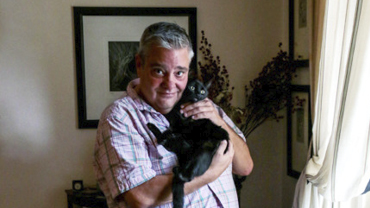
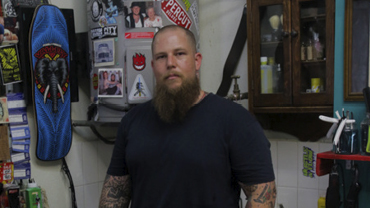
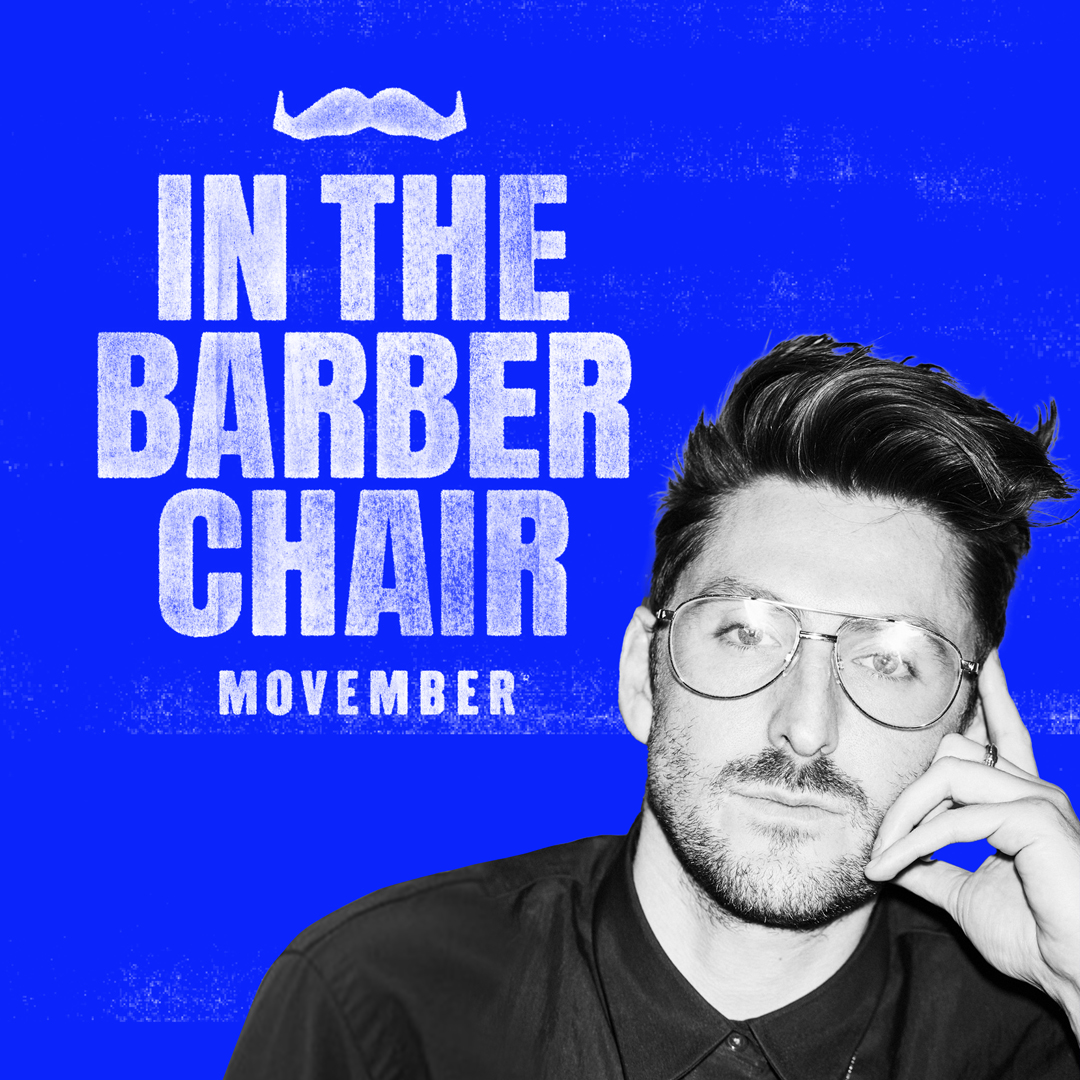
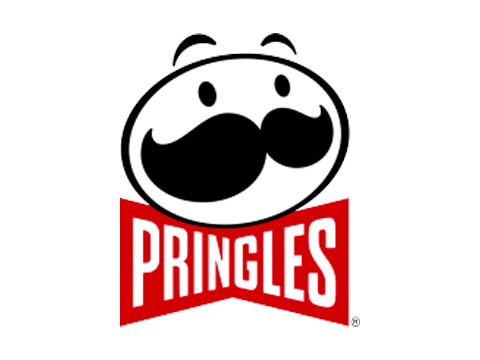

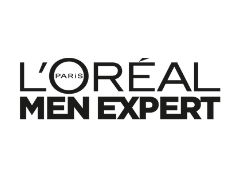
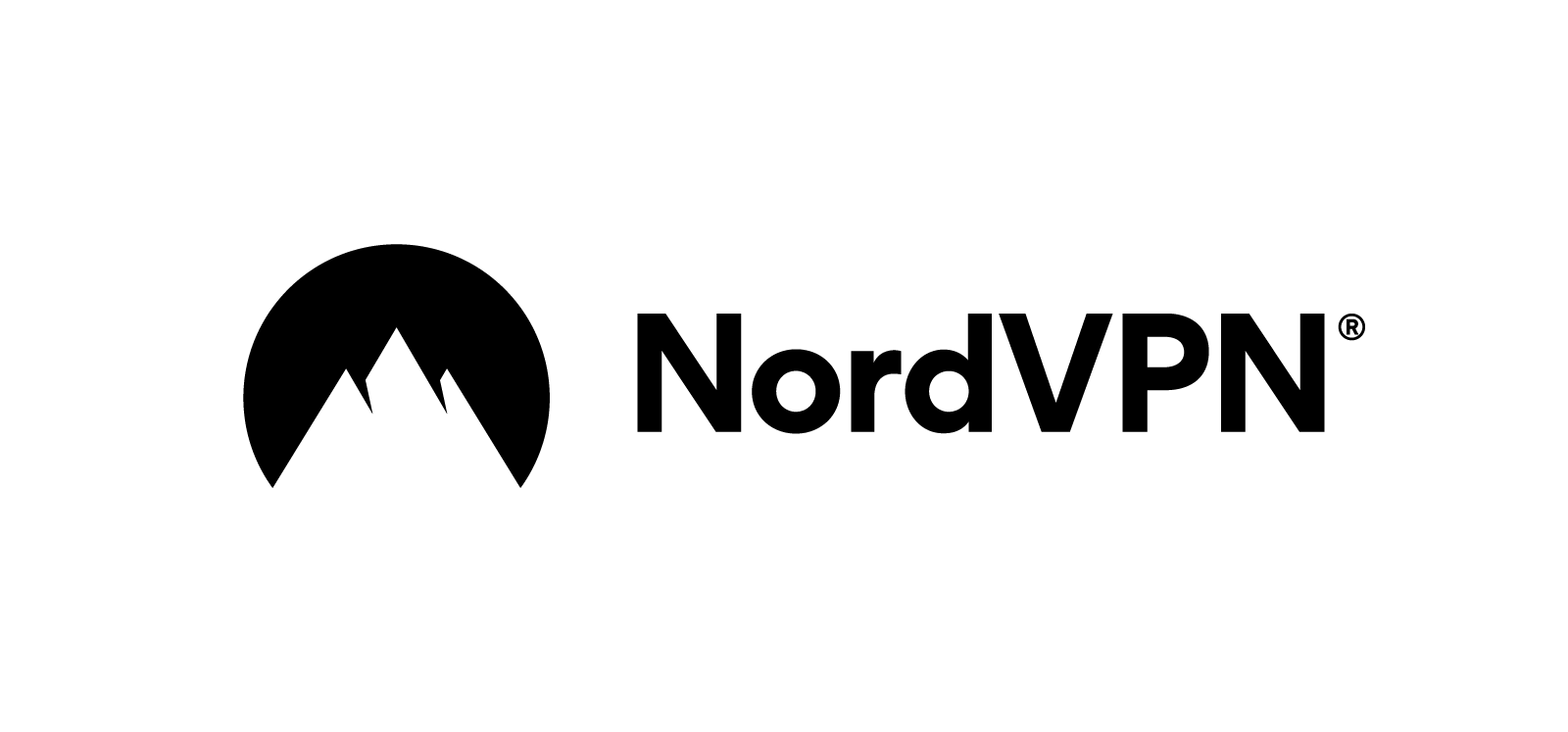

(1).png)

